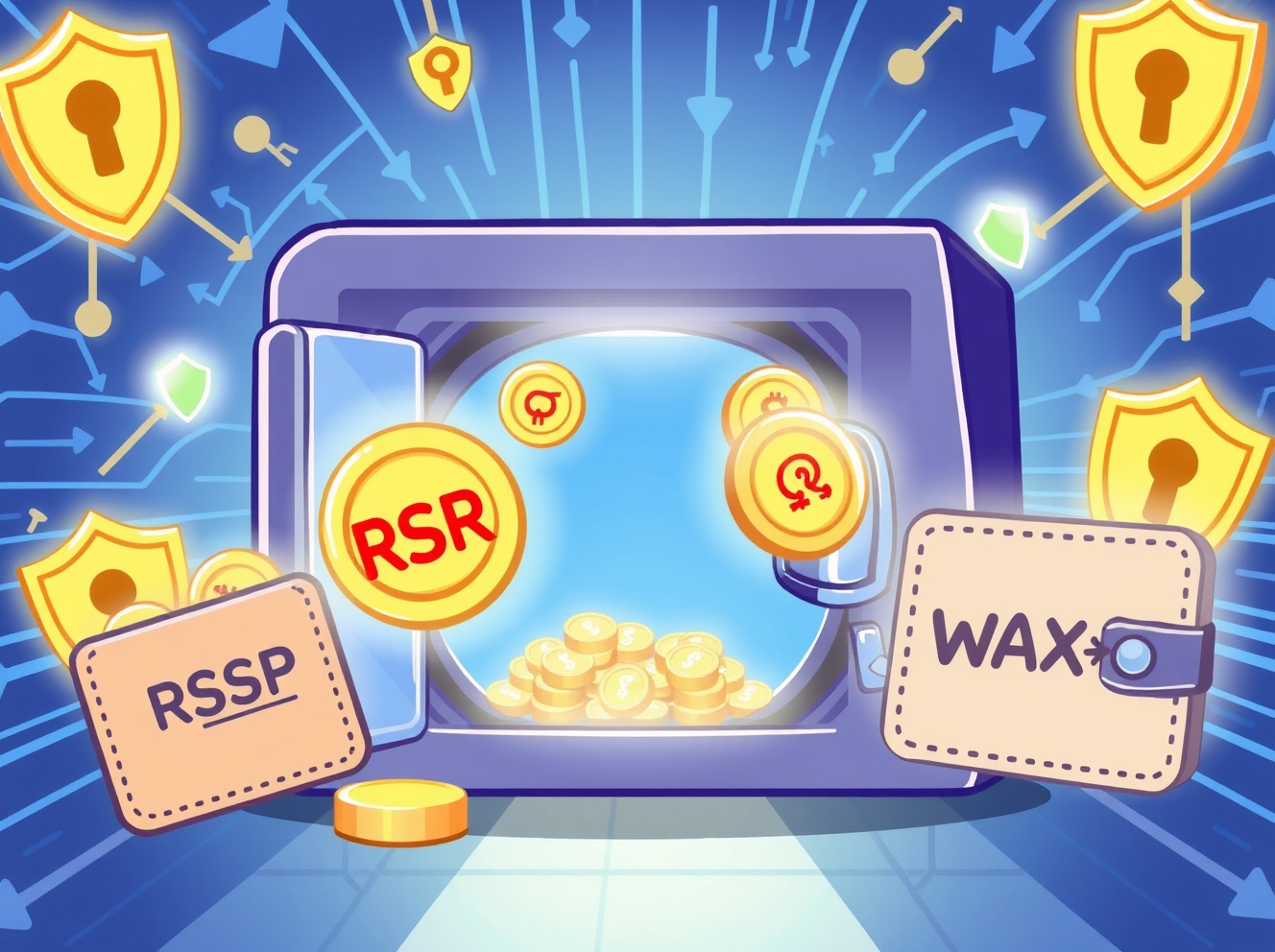Shocking U.S. Government Transfer of FTX-seized RSR and WAXP Sparks Market Alert

BitcoinWorld
Shocking U.S. Government Transfer of FTX-seized RSR and WAXP Sparks Market Alert
In a dramatic development that’s shaking the crypto world, the U.S. government has transferred significant amounts of FTX-seized RSR and WAXP tokens to a new wallet. This move, tracked by blockchain analytics firm Onchain Lense, involves approximately 920,000 RSR and 99,000 WAXP originally seized from the collapsed FTX exchange and its sister company Alameda Research. The transfer raises crucial questions about government cryptocurrency management and its impact on digital asset markets.
What Does the FTX-seized RSR and WAXP Transfer Mean?
The movement of FTX-seized RSR and WAXP represents a significant step in the ongoing FTX bankruptcy proceedings. When authorities seize digital assets, they typically transfer them to secure wallets under government control. This particular transaction involving FTX-seized RSR and WAXP suggests the assets are being prepared for potential future actions, which could include:
- Secure storage during legal proceedings
- Preparation for eventual liquidation
- Compliance with court-ordered asset management
- Potential distribution to creditors
How Does This Affect RSR and WAXP Investors?
For holders of RSR and WAXP tokens, the transfer of FTX-seized RSR and WAXP creates both uncertainty and opportunity. Large movements of seized assets can influence market sentiment and token prices. However, the government’s systematic handling of these FTX-seized RSR and WAXP holdings demonstrates a structured approach to crypto asset management. Investors should monitor:
- Market reaction to the wallet transfers
- Potential selling pressure if assets are liquidated
- Regulatory implications for token ecosystems
- Long-term impact on token utility and adoption
Why Should You Care About Government Crypto Movements?
The handling of FTX-seized RSR and WAXP sets important precedents for how governments manage seized digital assets. Each transfer of FTX-seized RSR and WAXP provides valuable insights into regulatory approaches and asset security protocols. Moreover, these movements affect market liquidity and investor confidence across the broader cryptocurrency space.
What’s Next for the FTX-seized RSR and WAXP Assets?
Looking ahead, the FTX-seized RSR and WAXP will likely remain in government custody until court proceedings determine their final disposition. The systematic transfer of these FTX-seized RSR and WAXP tokens indicates careful asset management rather than immediate liquidation. Market participants should watch for:
- Court decisions regarding asset distribution
- Potential auction or sale announcements
- Impact on RSR and WAXP tokenomics
- Regulatory developments stemming from this case
The transfer of FTX-seized RSR and WAXP highlights the evolving relationship between governments and cryptocurrency markets. As authorities become more sophisticated in handling digital assets, such movements will continue to shape market dynamics and regulatory frameworks. The careful management of these FTX-seized RSR and WAXP tokens demonstrates progress in institutional cryptocurrency handling while reminding investors of the importance of regulatory compliance and asset security.
Frequently Asked Questions
What are RSR and WAXP tokens?
RSR is the Reserve Rights token that supports the Reserve Protocol, while WAXP is the utility token for the WAX blockchain platform, both affected by the FTX collapse.
Why did the government seize these tokens?
The U.S. government seized these assets as part of the FTX bankruptcy proceedings and investigation into alleged financial misconduct.
Will the government sell these tokens?
While possible, the government typically follows court procedures for asset disposition, which may include holding, selling, or distributing to creditors.
How does this affect token prices?
Large asset movements can create market uncertainty, but the long-term impact depends on how the assets are ultimately handled.
Can investors track these wallets?
Yes, blockchain analytics firms like Onchain Lense monitor these wallets, providing transparency about government crypto movements.
What happens to seized crypto long-term?
Seized cryptocurrency is typically held until legal proceedings conclude, then may be sold, returned, or distributed according to court orders.
Found this analysis of the FTX-seized RSR and WAXP transfer insightful? Share this article with fellow crypto enthusiasts on social media to spread awareness about government cryptocurrency management!
To learn more about the latest cryptocurrency regulatory trends, explore our article on key developments shaping digital asset government oversight and future market implications.
This post Shocking U.S. Government Transfer of FTX-seized RSR and WAXP Sparks Market Alert first appeared on BitcoinWorld.
You May Also Like

Paxos launches new startup to help institutions offer DeFi products
